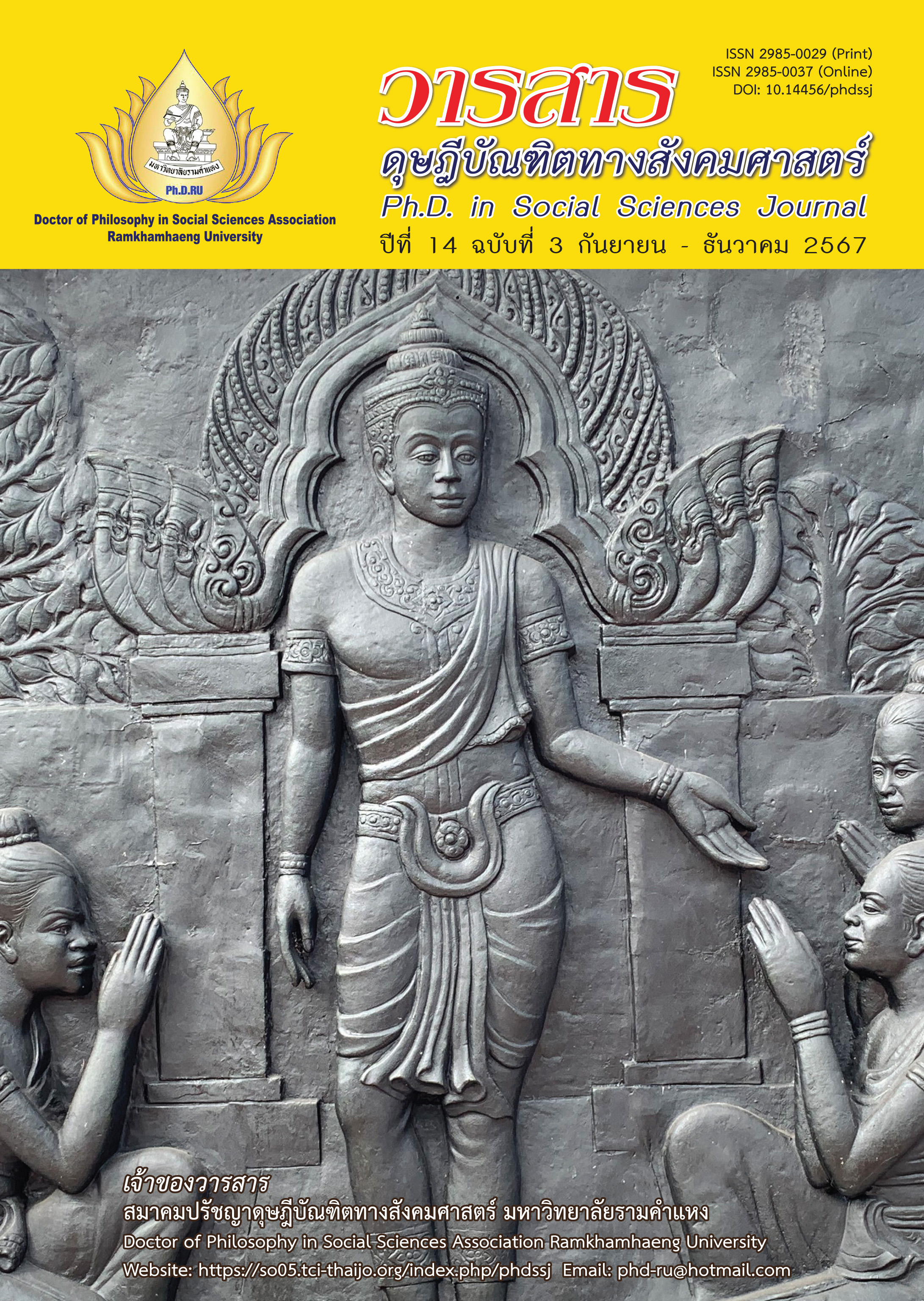Factors Affected to Decision Making Working on Application Food Delivery in Bangkok
Main Article Content
Abstract
This research article aims to study (1) study the entry process into the profession of delivery workers (riders) who work in Bangkok, and (2) identify the factors influencing the decision-making process of selecting food delivery applications by these riders in Bangkok.
The research employs a qualitative approach through in-depth interviews with 16 food delivery riders 4 riders from each application which are Grab, Lineman, Foodpanda, and Robinhood. The sampling was done following the Maximum Variation Sampling method by Miles and Huberman (1994) considering differences in location and time. Data was processed and analyzed using the ATLAS.ti software.
Findings are as follows: (1) The majority of food delivery riders entered the profession as a result of the COVID-19 pandemic. In terms of the pre-employment and training process, all four applications had relatively straightforward application procedures, although 2 out of 4 Robinhood riders reported difficulties in registration and training. (2) Most food delivery riders in Bangkok chose a particular application based on the advantages it offered. Grab was preferred for its clear product claim system, Lineman for its job distribution system, Foodpanda for allowing riders to choose and book their own working hours, and Robinhood for offering higher incentives, benefits, and compensation compared to other applications, with no GP (Gross Profit) deductions from the riders.
Article Details

This work is licensed under a Creative Commons Attribution-NonCommercial-NoDerivatives 4.0 International License.
Academic articles, research articles, and book reviews in the Ph.D. in Social Sciences Journal are author’s opinions, and not the publisher’s, and is not the responsibility of the Ph.D. in Social Sciences Journal Philosophy Association, Ramkhamhaeng University. (In the case that research is done on human, the researcher has to be trained in Ethics for Doing Research on Human Training and has to produce the evidence of the training).
References
Bangkokbiznews. (2020). Launch of the “Robinhood” app, a new food delivery alternative, opens for trial service on October 26. Retrieved from https://www.bangkokbiznews.com/business/904454 [In Thai]
Brandage Online. (2019). Open the case study “Lineman” creates opportunities from the pain points of consumers. Retrieved from https://www.brandage.com/article/9788 [In Thai]
Friese, S. (2012). ATLAS.ti 7 ouick tour. ATLAS.ti Scientific Software Development.
KASIKORN Research Center. (2019). Food ordering application competition drives food delivery business to continue to grow, expected to have a value of 33,000-35,000 million Baht in 2019. Retrieved from https://www.kasikornresearch.com/th/analysis/k-econ/business/Pages/z2995.aspx [In Thai]
Mann, D. (1975). Policy decision-making in education: An introduction to calculation and control. Teachers College Press.
Marketing Oops. (2018). Grab aims to become a daily apps, launching “GrabFood” into the food delivery business. Retrieved from https://www.marketingoops.com/news/brand-move/grab-food [In Thai]
Miles, M. B., & Huberman, A. M. (1994). Qualitative data analysis: An expanded sourcebook (2nd ed.). Sage.
Ministry of Labor. (2021). Career decision making: A model. Retrieved from https://lb.mol.go.th/คนหางาน-คนว่างงาน/แนะแนวอาชีพ/การตัดสินใจเลือกอาชีพ [In Thai]
Prommuang, P. (2021). Using the Atlas.ti program for qualitative research. Photocopied documents. Retrieved from https://www.academia.edu/34732882/การใช_โปรแกรม_Atlas_ti_สําหรับงานวิจัยเชิงคุณภาพ [In Thai]
Rocket Media Lab. (2021). How is the Thai rider?, what do you want?. Retrieved from https://rocketmedialab.co/rider [In Thai]
SALIKA: Knowledge Sharing Space. (2020). “New way of life” Thai rider “Fast horse” volunteers to relieve suffering in the “COVID era.” Retrieved from https://www.salika.co/2020/05/25/thai-rider-food-delivery-covid-19 [In Thai]
Shull, F. A., Delbecq, A. L., & Cummings, L. L. (1970). Organizational decision making. McGraw Hill.
The Standard. (2020). Foodpanda celebrates 8 years in Thailand, expanding service area to cover 67 provinces. Retrieved from https://thestandard.co/foodpanda-8-years [In Thai]


